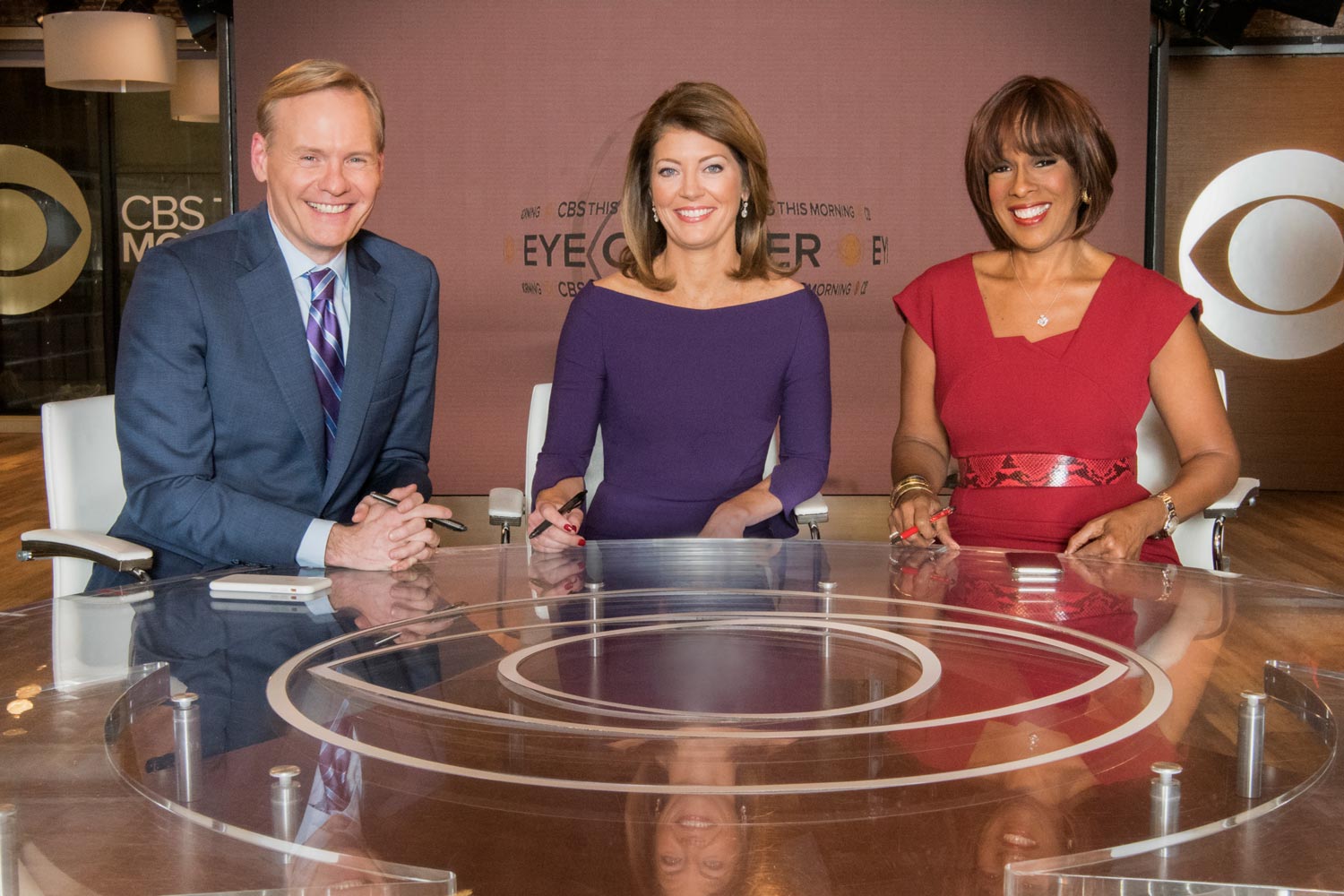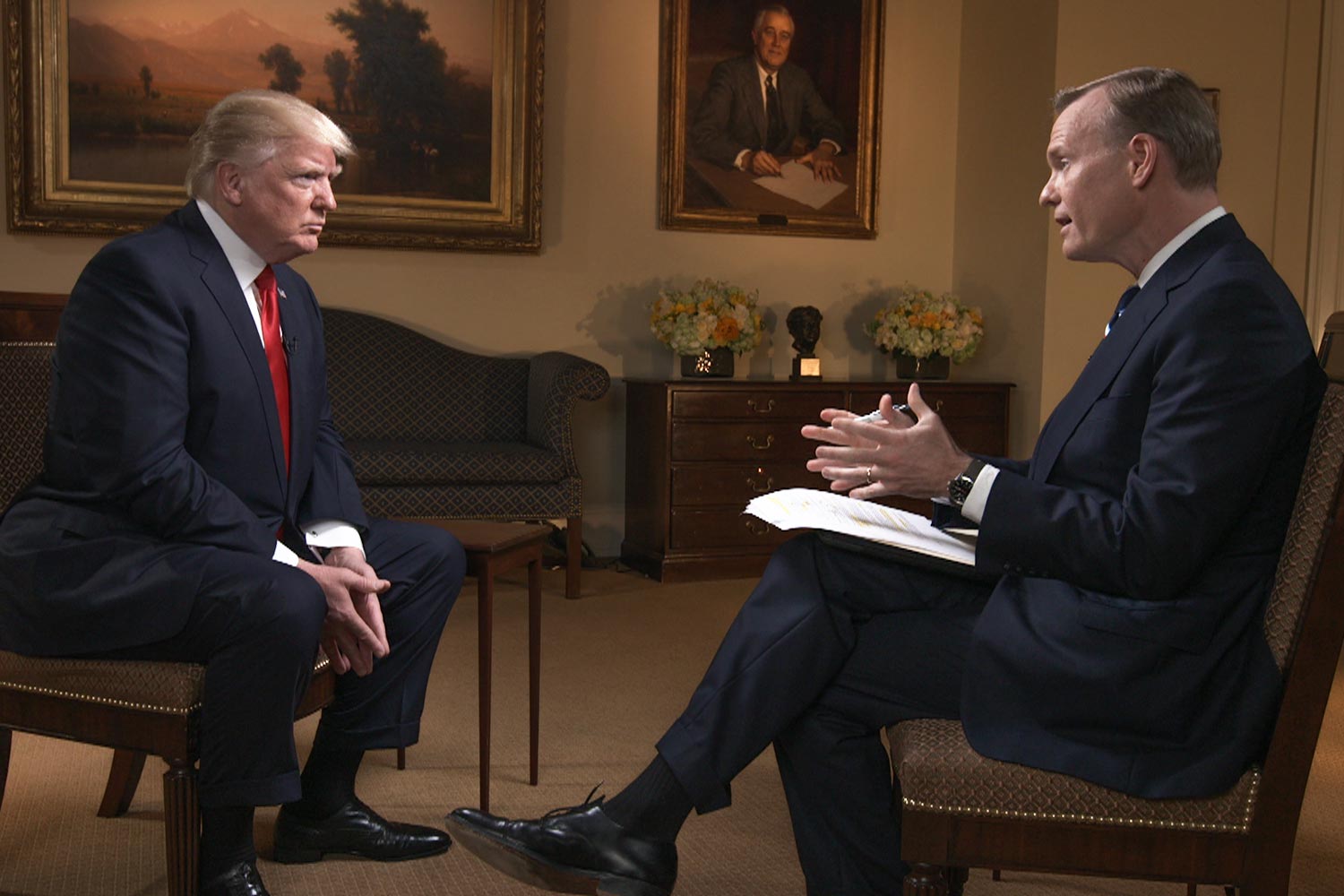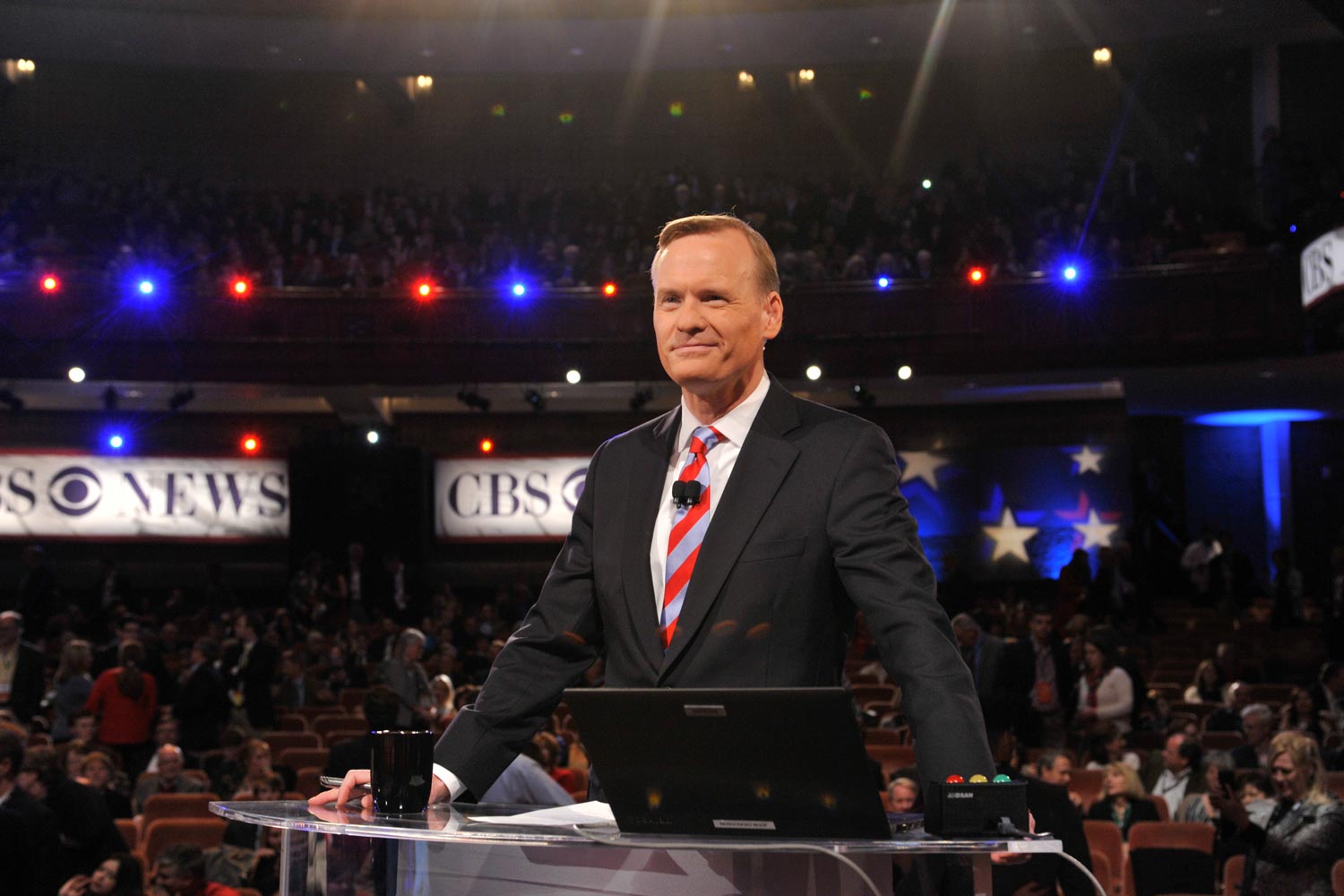University of Virginia alumnus John Dickerson is the newest host of “CBS This Morning,” bringing international news, interviews and analysis to millions of viewers.
Dickerson, who graduated in 1991 with an English degree, is a veteran political journalist who previously helmed the network’s “Face the Nation” Sunday public affairs show. As an anchor, journalist and White House correspondent, the Washington, D.C. native has covered numerous presidential administrations and campaigns and moderated two presidential debates in 2016.
He joins “CBS This Morning” co-hosts Gayle King and Norah O’Donnell, and replaces longtime host Charlie Rose, who was fired in November after numerous women accused him of sexual harassment.
We spoke with Dickerson after he wrapped his first “CBS This Morning” show on Wednesday.
Q. Congratulations on the new position. How did the first show go?
A. Thank you! It went really well. We covered a variety of topics, and all of them sparked interesting questions for me.
Imagine waking up in the morning, looking at the newspaper and seeing the day’s most interesting stories, then getting to talk directly with the people who are in the middle of those stories. That’s basically what being on this show is like. I love it – it gives me plenty of opportunities to exercise the intellectual curiosity instilled in me at UVA.

“CBS This Morning” co-hosts Norah O’Donnell, Gayle King and John Dickerson. (Photo by Michele Crowe/CBS ¬©2018 CBS Broadcasting, Inc. All Rights Reserved)
Q. What are you looking forward to about the switch from “Face the Nation” to “CBS This Morning”?
A. At UVA, I was a government and international relations major before I switched to the English major. As much as I am interested in politics and government – and I love covering those stories – I also have other interests in culture, in business, in the arts.
Today [Wednesday] we talked about the immigration meeting that President Trump held at the White House – the substance of the meeting, its format, the president’s decision to invite cameras in, and the insights the meeting offered into both parties’ vision for immigration. But we also talked to a Facebook investor about what social media is doing to our culture and interviewed Matthew Rhys, the actor who played whistleblower Daniel Ellsberg in the new movie, “The Post.”
It was great being able to talk about all of that in one show with Norah and Gayle, who are just as curious as I am and who bring their own perspectives and angles. That’s really what brought me into the show.
Q. Journalism has rapidly and drastically changed with digital technology. What challenges does today’s media environment pose as you work to report well-researched but timely news?
A. One of the amazing things about “CBS This Morning” is how many people are devoted to the show. Many of them stay up all night changing or updating our material, and we are still updating and evolving as we arrive in the morning and while we are on air.
The show is built to handle that pace. We try not just to keep up with what is happening, but to put it in context. We bring on people who can provide important context, and who can talk about and analyze a story even after that first big flashpoint has passed.
Q. You’ve spent a lot of time covering several different presidential administrations. How, if at all, is covering President Trump different, given his public disapproval of many media outlets?
A. All presidential administrations have complained about press coverage they did not like, and many of them have had the same complaints. However, they also believed in the necessity of the press to the American political system and to their administration. As much as Bill Clinton, George W. Bush or Barack Obama complained about negative press coverage, they also talked about the fundamental and vital role of the press in democracy.
President Trump has a lower threshold for saying things that are not true and often distorts or fabricates events. That makes a free press all the more necessary, both to get the facts right when the president is wrong and to be fair to the president when the bandwagon of criticism gets rolling. The press will do no good for anyone if it goes overboard and diminishes its role by losing its sense of detachment and objectivity.

Dickerson interviewed President Trump in the Roosevelt Room at the White House on Trump’s first 100 days in office. (CBS News, Face the Nation. ©2017 CBS Broadcasting Inc. All Rights Reserved)
Q. You joined “CBS This Morning” right after the firing of Charlie Rose and in the midst of a national movement addressing sexual harassment. How have those circumstances affected how you are approaching your new role and covering topics like sexual harassment?
A. It has not really affected my transition to the show, beyond of course necessitating that initial change. However, it’s certainly a topic that we are paying close attention to and covering a great deal on the show. For example, Norah did some great original reporting about sexual assault at the Air Force Academy.
Q. How has your UVA education helped you analyze and provide context for important moments in national history and culture, like the 2016 presidential election or the #MeToo movement?
A. Going to school at UVA, you are living in the historical context of Jefferson’s Academical Village and his vision for democracy. Because of where you go to school, you are always conscious of events preceding your own time and what they can tell you about the present moment.
The rigor of UVA’s education has also been helpful. In the English department, we were constantly challenged to think about the “why” behind whatever we were studying. We didn’t just read novels, but thought about why the authors made the choices that they did and the larger cultural influences at work. That is a lot of what we do on the show.
Q. Any advice for fellow Wahoos who see themselves in your chair someday?
A. Take in everything UVA teaches you in the classroom and keep the honor code in mind. It’s especially important in a day and age where people are not always honest and trustworthy.
Q. In your first show on Wednesday, Gayle King mentioned your mother. [Dickerson’s late mother, Nancy Dickerson, was the first female member of the Washington, D.C. television news corps and the first female host of NBC’s “Today” show.] What do you think her advice would be to you right now?
A. Her advice would be to stay focused and tell the important stories that give people some sense of control over the world they live in, which is what good information does. That was always her advice – to honestly deliver information, pay close attention and put events into context as they happen.
Q. Finally, if you could have anyone as your next guest on the show, who would it be?
A. The Pope. I’m a Catholic, and I am fascinated by how he has approached his role as a leader of a world religion, his changes to the church and its structure and his challenges to the leaders of the world. His message of paying more attention to those who have the least and his efforts to push that message are very powerful and interesting.
Media Contact
Article Information
January 11, 2018
/content/alum-john-dickerson-fired-about-co-hosting-cbs-morning

